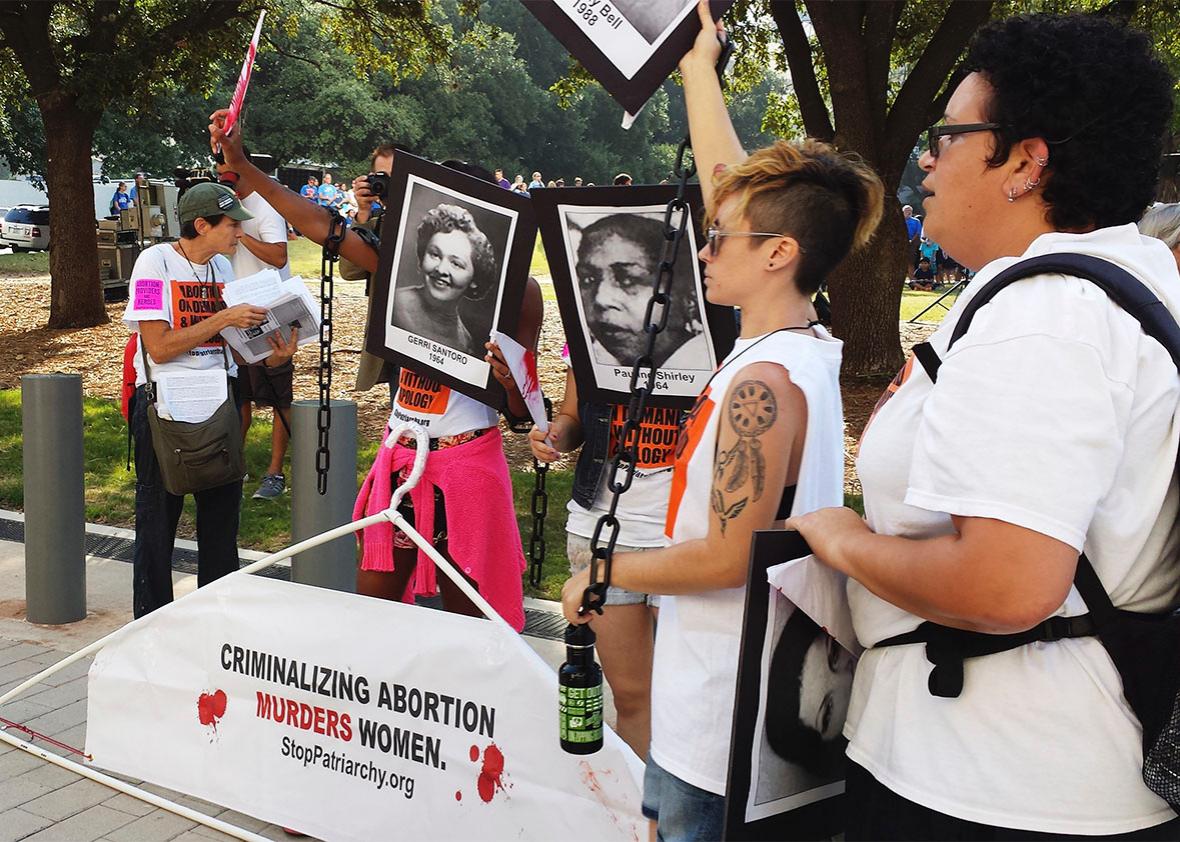“You mean, if we needed abortions, our regular OB-GYNs probably couldn’t perform them?” we asked incredulously. “That’s right,” the Washington, D.C. doctor responded.
We are two associates at a big law firm—Susannah based in D.C. and Sarah in New York City—and both women of childbearing age. But we had no idea how difficult it is to obtain an abortion, even with health insurance in a big progressive city, until we represented a group of doctors who provide abortion care before the Supreme Court.
The Supreme Court will soon hear arguments in Whole Woman’s Health v. Hellerstedt, a case challenging Texas’ new restrictions on abortion providers. While writing an amicus brief on behalf of such providers, we interviewed many doctors across the country, in states including Kansas, Louisiana, Wisconsin, and California. When we started working on the case, we were generally aware of the restrictions on obtaining abortions in some states, due to so-called “Targeted Restrictions on Abortion Providers” or TRAP laws. And we quickly became familiar with the Texas abortion restrictions, which impose medically unnecessary provisions such as requiring providers to have admitting privileges at a local hospital and requiring abortions to be performed at specialized surgical centers—even medical abortions that involve only taking a pill. But we assumed everything was different in bigger, more progressive cities. We were wrong.
Many OB-GYNs routinely perform the simple surgical procedure known as a dilation and curettage, or D&C, following early miscarriages. Medically speaking, they could perform the exact same procedure for an early abortion. But many of them don’t—or rather, they can’t, even in cities where abortion is widely accepted. Why? For some providers, their malpractice insurance won’t cover it. Often, the provider’s employer won’t allow it. Hospitals or practices affiliated with Catholic organizations generally forbid D&Cs for abortion, and many states prohibit abortion care at state-funded facilities. Even many private hospitals won’t allow it, simply because they don’t want to deal with all of the added regulation and controversy that comes with abortion care. And even in big liberal cities, care providers face harassment. One D.C. doctor told us about threats anti-abortion protesters been made against her young child; now she worries every time she drops her daughter off at daycare.
So in short, our regular OB-GYNs—the ones who provide us all manner of reproductive care, whom we know and trust, who delivered Susannah’s daughter—likely wouldn’t be able to perform this standard and critical procedure should we need it.
Even OB-GYNs who are able and willing to perform abortions often face the additional hurdle of patients whose health insurance won’t cover abortion. We were shocked to learn from one doctor that an abortion for a grieving woman who was carrying a fetus with a fatal anomaly had to be halted at the last minute because her federal government health insurance—health insurance we both recently used while clerking for federal judges—wouldn’t cover abortion care even in such a case. During our time clerking, had either of us become pregnant and learned that we were carrying a fetus with fatal abnormalities, we, too, would have discovered that our health insurance would not pay for an abortion.
We found ourselves feeling tremendously grateful to the doctors we interviewed for providing women safe reproductive health care in such a challenging environment. But too often, compassionate doctors are unable to provide desired care to women in need—care that they were trained to provide. One doctor recalled a patient who had been raped and needed an abortion. This patient had Medicaid, which would pay for an abortion in the case of rape, but the doctor—despite her extensive training—could not perform the procedure because of restrictions at the university hospital where she works. The patient ended up having to travel out of state several weeks later to have a surgical abortion. She paid out of pocket for the health care she needed after she had been raped.
TRAP laws undoubtedly affect some women far more than others. Texas’ law would result in shuttering three-quarters of the abortion clinics in Texas and require some women to travel hundreds of miles to receive this basic care. But pro-choice women should keep in mind that abortion restrictions affect women in every city and every state. We should all be concerned that if the Supreme Court reverses decades of clear precedent in supporting a woman’s access to abortion and upholds Texas’ law regulating abortion providers, the pressures on highly trained, experienced, and ethical physicians—and on the women who need access to their care—will only intensify.
